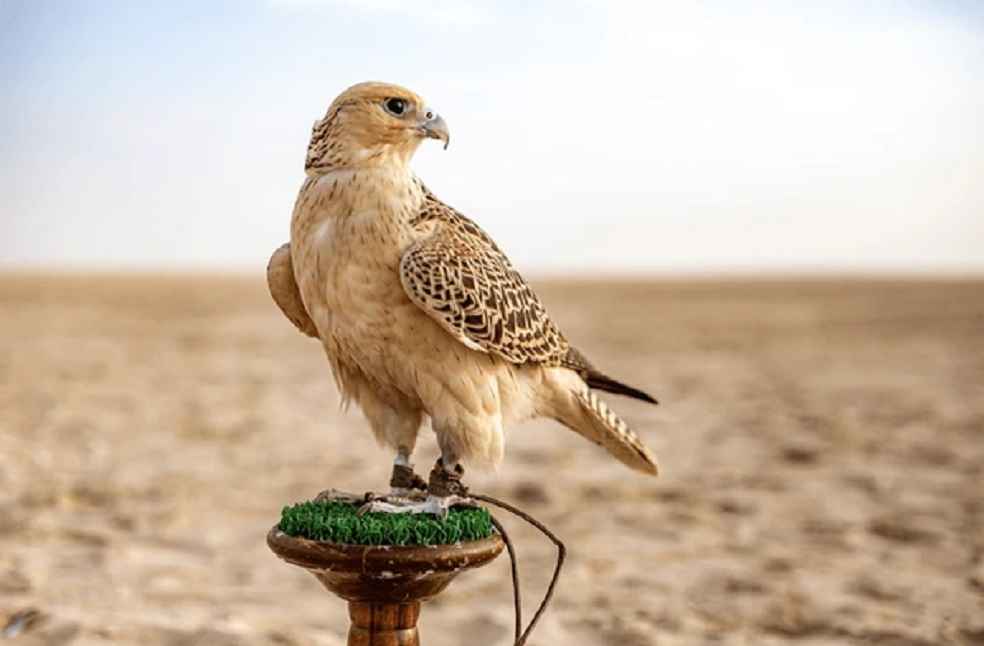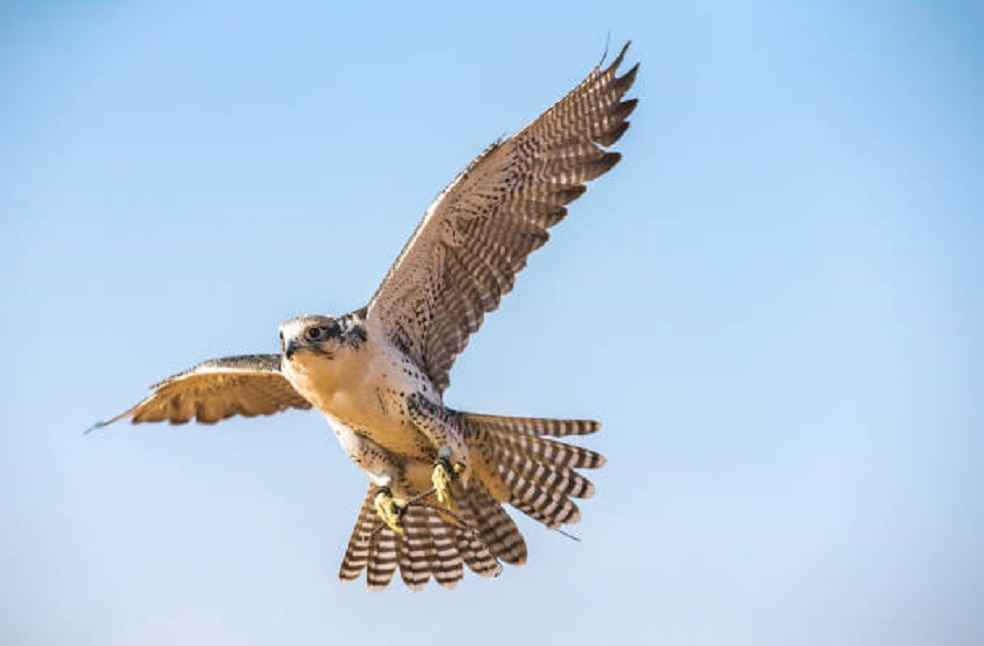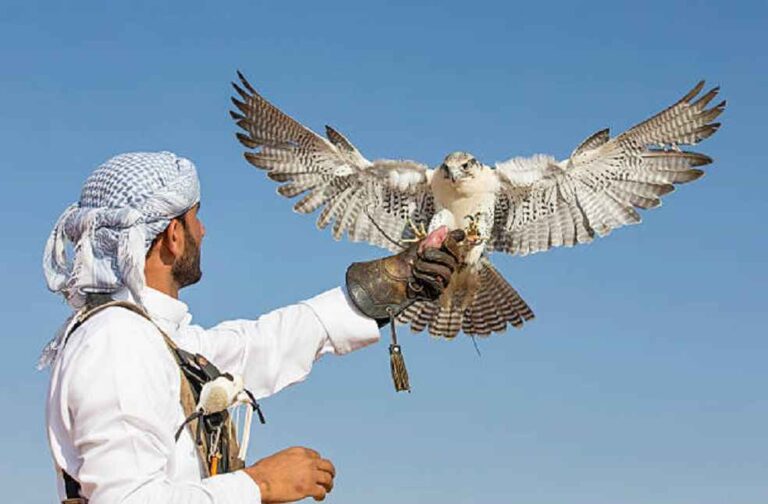To protect falcons from exploitation, the government has mandated stricter controls on the import and export of these birds to ensure they are returned by their owners and not exchanged, traded, or abandoned in Pakistan. This trade rules to protect wildlife comes after reports of Gulf dignitaries abandoning injured or older falcons while taking younger, healthier ones, which are often illegally trapped in Pakistan and sold on the black market.
The decision was taken during a Convention on International Trade in Endangered Species of Wild Fauna and Flora (CITES) Management Authority meeting held on September 4. The inspector general of forests briefed the attendees on the issuance of No Objection Certificates (NOCs) to the Ministry of Foreign Affairs (MoFA) for the import and export of 3,900 falcons for Gulf dignitaries.
Federal Law Minister Azam Nazeer Tarar expressed concerns about ensuring that the imported falcons for hunting were the same ones taken back, and about possible tampering with the microchips used to identify these birds.

In response, a representative from the Ministry of Climate Change and Environmental Coordination assured that the falcons would be equipped with microchips and identification passports. The tagging measures would prevent illegal trade or swapping of the birds, and dignitaries would be required to take back the same falcons they used for hunting. The official clarified that these permissions were strictly transit-related, not for commercial trade.
The NOCs issued for falcons would be valid for a maximum of four months, in line with the houbara bustard hunting season. The Ministry of Foreign Affairs has been tasked with coordinating with relevant authorities, such as Customs and the Ministry of Interior, to ensure compliance with import-export conditions.
During the meeting, the Chief Conservator of the Balochistan Wildlife Department brought attention to ongoing Supreme Court litigation concerning the hunting of the houbara bustard—a long-debated issue in Pakistan. The deputy chief of protocol from MoFA also noted that there had been no new developments regarding these legal cases.

A thorough review of all falcon import and export cases involving Gulf dignitaries was decided to ensure compliance with the law. The CITES Management Authority approved the requests following recommendations from the MoFA, emphasizing strict adherence to all conditions and standard operating procedures (SOPs) by the authorities.
According to meeting minutes, Saudi Arabia’s Prince Fahad Bin Sultan Bin Abdul Aziz Al-Saud, along with other dignitaries, sought permission to import 375 falcons for houbara bustard hunting. Sheikh Mohammad Bin Zayed Al Nahyan, President of the UAE, and other dignitaries requested to import 1,800 falcons, while Qatar’s Emir Tamim Bin Hamad Al Thani and Bahrain’s King Hamad Bin Isa Al-Khalifa requested to bring 1,635 and 300 falcons, respectively.
IMEX SECTOR | Kenya’s First Dried Sea Cucumber Export Reaches China, Boosts Africa-China Trade



